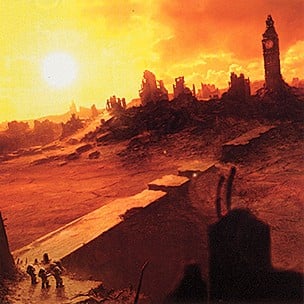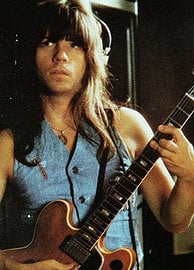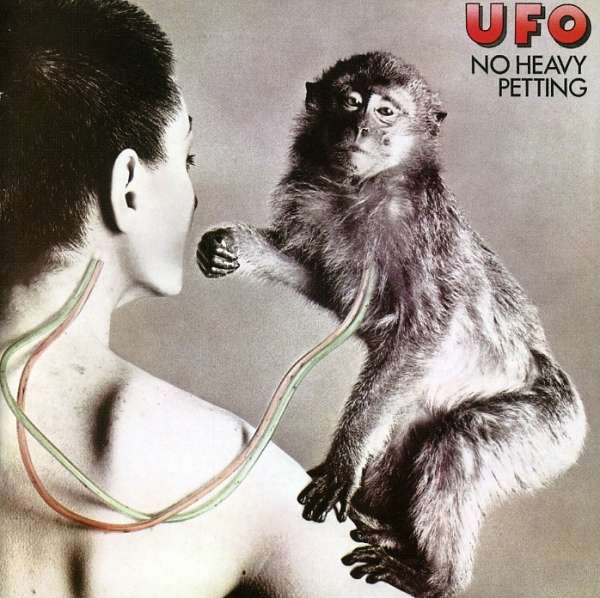Progarchives.com has always (since 2002) relied on banners ads to cover web hosting fees and all.
Please consider supporting us by giving monthly PayPal donations and help keep PA fast-loading and ad-free forever.
/PAlogo_v2.gif) |
|
Post Reply 
|
Page <1 1112131415 26> |
| Author | |||||||
Flashlight 
Forum Newbie 
Joined: November 22 2012 Status: Offline Points: 3 |
 Posted: November 22 2012 at 21:46 Posted: November 22 2012 at 21:46 |
||||||
|
Folllow the money.
|
|||||||
 |
|||||||
progbethyname 
Forum Senior Member 

Joined: July 30 2012 Location: HiFi Headmania Status: Offline Points: 7798 |
 Posted: November 22 2012 at 21:49 Posted: November 22 2012 at 21:49 |
||||||
 Dream Theater are strictly progressive metal with some symphonic prog elements as well. Virtuoso and technical ability is the bands niche. They are the godfather of prog metal. A creative force that cannot be shut down even with the loss of one of the best drummers in the world. To me, that shows major character. Dream Theater are strictly progressive metal with some symphonic prog elements as well. Virtuoso and technical ability is the bands niche. They are the godfather of prog metal. A creative force that cannot be shut down even with the loss of one of the best drummers in the world. To me, that shows major character.
|
|||||||
|
Gimmie my headphones now!!! 🎧🤣
|
|||||||
 |
|||||||
progbethyname 
Forum Senior Member 

Joined: July 30 2012 Location: HiFi Headmania Status: Offline Points: 7798 |
 Posted: November 22 2012 at 21:59 Posted: November 22 2012 at 21:59 |
||||||
 I totally disagree. Odd metering is incredibly previlent in Neo prog. Great complex rhythms that are oddly timed are surely demonstrated in drummers like PAUL COOK(IQ) MICK POINTER(ARENA) and DANNY CAREY(tool). I think your not exploring the genre properly and are making half fast comments cause you possibly believe what your saying. Neo prog is an exceptional genre and from a creative stand point it's very much on par with what the 70's prog movement had to offer. It's just different my friend. Not better and certainly not worse. I totally disagree. Odd metering is incredibly previlent in Neo prog. Great complex rhythms that are oddly timed are surely demonstrated in drummers like PAUL COOK(IQ) MICK POINTER(ARENA) and DANNY CAREY(tool). I think your not exploring the genre properly and are making half fast comments cause you possibly believe what your saying. Neo prog is an exceptional genre and from a creative stand point it's very much on par with what the 70's prog movement had to offer. It's just different my friend. Not better and certainly not worse. 
|
|||||||
|
Gimmie my headphones now!!! 🎧🤣
|
|||||||
 |
|||||||
progbethyname 
Forum Senior Member 

Joined: July 30 2012 Location: HiFi Headmania Status: Offline Points: 7798 |
 Posted: November 22 2012 at 22:10 Posted: November 22 2012 at 22:10 |
||||||
Think how you want to explain this if I'm reading it correctly is that each time period or generational class of music ie(70's-80's-90's) carries a distinctive technological sound. For instance, when I hear drum Machines and electro synth I think 80's. When I hear the moog, mellotron and organ I think of the 70's and of course when I hear grunge peddle tweaking with the guitar I think 90's. That is distinction and authentication from each era to me |
|||||||
|
Gimmie my headphones now!!! 🎧🤣
|
|||||||
 |
|||||||
richardh 
Prog Reviewer 

Joined: February 18 2004 Location: United Kingdom Status: Offline Points: 26350 |
 Posted: November 23 2012 at 01:33 Posted: November 23 2012 at 01:33 |
||||||
in a way the answer to the original question is in the question itself. Classic anything always fades. Thats why its classic.
|
|||||||
 |
|||||||
Surrealist 
Forum Senior Member 
Joined: October 12 2012 Location: Squonk Status: Offline Points: 232 |
 Posted: November 23 2012 at 04:58 Posted: November 23 2012 at 04:58 |
||||||
I have mentioned this on another thread and received much resistance, but digital recording has been an absolute disaster to progressive rock in particular. The great Prog bands stood out because they were technically superior musicians in most cases compared to your standard rock musicians. Before digital editing where EVERYTHING can be fixed after is has been recorded, bands actually had to play the parts even when multitracking. Now, musicians spend more time on a computer than they do playing their instruments. Most every musician these days is so caught up in the computer editing software they literally would not know what to do without it. Line everything up perfect, fix this, fix that, change the pitch of the vocal that was flat, quantize the drums and bass together, play 5 seconds of perfection and copy and past it endlessly or loop it over and over and thump your chest with your fists and declare you are a "golden god". Sample someone elses perfect sounds... etc. It is an absolute disaster stripping the humanity and life out of nearly every recording. As bad as digital recording is in the hands of street consumers, poor quality recordings are standard fair and accepted as status quo. While Prog in the 70's often had real pros working with the bands, now it amateurs teaching amateurs how to be sound engineers. George Martin is now "Cee Low" rapper. The public now expects the homogenized sound everyone has access to. In the 70's, the lack of this "silly luxury" kept it real and musicians actually had to practice to lay quality tracks. In that extra practice also came ideas while practicing so this aided the creative process as it had for thousands of years. I sold some gear to a guy who said his 13 year old son has written 10 full symphonies on a computer, even though he can't play any instrument. This is utter nonsense and needs to stop. Of course the recordings pre digital age were much more honest.. and everyone could feel the band and how they were shaping the music and their sound. Music IS NOT about perfection in production any more that oil paintings should look like photography. We are getting TV dinner music compared to grandma's home cooking goodness. So I know the same folk here are going to go on and on about how things change, and it's not the 70's anymore, and prog progresses and yadda yadda yadda.. but that is just that crap argument for TV dinners are the grand progression of human food processing. The prophetic "Grand Parade of Lifeless Packaging" has arrived and I hope it tastes good to you guys.. it sure doesn't to me. |
|||||||
 |
|||||||
rogerthat 
Prog Reviewer 
Joined: September 03 2006 Location: . Status: Offline Points: 9869 |
 Posted: November 23 2012 at 06:20 Posted: November 23 2012 at 06:20 |
||||||
I agree with much of what you said, but in my opinion it has very little to do with recording techniques or playing styles or the 'extent of digital manipulation' but something much more fundamental, that being the slow death of composition. Everybody only wants to be the next Petrucci or the next Halford today, nobody wants to be the next Iommi, the riffmeister par excellence. Nobody wants to be the next Fripp, who is of course a very accomplished guitarist (and just doesn't shred, making his technicality more subtle). Ideas have probably never been as devalued since the time of the Beatles as they are today in rock music. This also has much to do with nostalgic attachment of listeners to old sounds and old styles. Let's face it, we just don't have much time for music. And in what time we do have, most of us don't like to be surprised. I guess the first impulse of most people if they hear something weird and discomfiting (to them) would be to blast the pretension and overambitiousness of the band than to praise their adventure. It would be very discouraging for bands to innovate in such a climate and so they go on pouring old wine in a new bottle. But then of course, people like Surrealist complain that the bottle has changed! And so it goes on. |
|||||||
 |
|||||||
Dean 
Special Collaborator 

Retired Admin and Amateur Layabout Joined: May 13 2007 Location: Europe Status: Offline Points: 37575 |
 Posted: November 23 2012 at 06:49 Posted: November 23 2012 at 06:49 |
||||||
I really don't get this. Just because the tools are there to allow producers and sound engineers to do this it does not mean that it is used everywhere on everything by everyone. Time alone does not permit this - faffing about tweeking every note is time-consuming and just does not happen, sure the odd note may be tweeked if studio-fatique results in the musician failing to hit that special note perfectly in every take but even in today's studio environment near-enough is good-enough, just as it was in the halcion days of time-is-money analogue studios. If you are recording a live band, which is the case in most Progressive Rock/Metal bands today just as it was back then, then the aim is to produce the best product for the person paying the studio invoice - you cannot equate this to a bedroom amatueur using Fruityloops Studio on their Playstation, a manufactured Pop artist or whatever is happening in the Rap and R&B world. The argument is disengenuous and an insult to modern musicians and studio engineers.
If everything you say is true then you have to ask why. Why are these so-called amateurs using modern technology kicking the arses of so-called professionals so hard? If what they are producing is so inferior then where is the threat?
The reality is they are not amateurs teaching amateurs - there are now more professional studio engineers than ever before, it is a discipline that has an academic foundtion that did not exist back in the day. More students are studying studio sound production at college and university than ever before and those who graduate with a professional qualification are finding fulltime employment in real live studios working with real live musicians producing real live music. The technology used is irrelevant in these cases, it is just a means to an end, a tool of the trade.
Even then, modern digital studios are owned and staffed by people who learnt their trade the old-fashioned way and they are using the same techniques and methods that have been used since the first professional recording studio was built. Many of the studios I am familiar with in my local area are owned by practicing musicians. This is just less institutionalised and corporate than it was in the days of George Martin and Abbey Road, more of these studios are privately owned and managed and are not under the direct control of a record label or multi-national corporation, but that does not make them amateur or unprofessional. I would not call Karl Groom at Thin Ice Studios an amateur producer/engineer or an unpracticed or amateur musician, nor would I level that criticism at any of the artists who have recorded albums using his studio. He is not an exception here, there are hundreds of professional studios working throughout the world owned, employing and employed by professionals. Moreover, he is a real person, if you formulate a list of questions (and accusations) in a rational way then we can go and interview him about his studio and the methods he uses when recording, and discuss the merits of analogue and digital recording, I cannot guarantee he will reply, but we can but ask (which is far better than making unsubstantiated assumptions).
The numbers of self-taught amateurs creating music in their bedrooms, basements and garages is indeed higher than ever before too, but they are not in direct competition with the professionals working in professional studios, they are not producing mass-market product that is selling by the bucket-load. If one in a thousand of those creates something that makes you sit-up and listen then hooray! Let's applaud that achievement for what it is and not deride the nine hundred and ninety-nine others for failing to threaten the professionals.
No they don't. They get what they're given and if they like it they buy it. There is no consumer expectation at play here. In the real world people don't buy based upon the production qualities alone.
And modern musicians do not practice? Please provide actual proof of this.
Why?
Why is a 13-year old amateur composing 10 full symphonies on a computer perceived to be such a threat? If the kid is happy doing what he does and that makes his dad proud enough to invest some cash in his hobby then where is the crime and where is the harm? Even in my jaded view of the X-Box generation this is something that should be applauded and encouraged, not ridiculed and stopped.
You have made a judgement without hearing a single note that leaves me wondering how much of your other pronouncements are based upon preconceptions and assumptions. You were more than happy to take the guy's money it seems.
The modern world is full of honest musicians making honest recordings using whatever technology is at hand. Manufactured music existed back in the 60s and 70s, whole albums were released by "bands" who never played a single note on their own albums.
And this is true today, you only have to cast off your preconceptions to see this.
Blah. This is utter nonsense and has to stop.
|
|||||||
|
What?
|
|||||||
 |
|||||||
tamijo 
Forum Senior Member 
Joined: January 06 2009 Location: Denmark Status: Offline Points: 4287 |
 Posted: November 23 2012 at 07:17 Posted: November 23 2012 at 07:17 |
||||||
|
^ Great post - just what i would like to answer, if I had the language skill, to express myself clearly in long posts.
Edited by tamijo - November 23 2012 at 07:19 |
|||||||
|
Prog is whatevey you want it to be. So dont diss other peoples prog, and they wont diss yours
|
|||||||
 |
|||||||
Gerinski 
Prog Reviewer 

Joined: February 10 2010 Location: Barcelona Spain Status: Offline Points: 5128 |
 Posted: November 23 2012 at 07:30 Posted: November 23 2012 at 07:30 |
||||||
What you say may be right for much mainstream music out there but we still have real musicians in prog and I believe that most of what we hear in modern prog studio albums has actually been played "live in the studio" on a real instrument. If what you say was true modern bands would not be able to play live concerts.
I do agree that the extensive use of digital technology and post-recording editing of some modern prog makes it sound more sterile, but that is not the rule.
And I do agree with Rogerthat that generalising, modern musicians seem to tend to pay less attention to composition, though I am aware that this statement is subjective.
|
|||||||
 |
|||||||
Snow Dog 
Special Collaborator 

Honorary Collaborator Joined: March 23 2005 Location: Caerdydd Status: Offline Points: 32995 |
 Posted: November 23 2012 at 07:51 Posted: November 23 2012 at 07:51 |
||||||
|
Well done Dean. I am getting tired of the drivel that surrealist writes.
|
|||||||
 |
|||||||
Dean 
Special Collaborator 

Retired Admin and Amateur Layabout Joined: May 13 2007 Location: Europe Status: Offline Points: 37575 |
 Posted: November 23 2012 at 09:08 Posted: November 23 2012 at 09:08 |
||||||
Of course I am cherry-picking here, deliberately ignoring the kind of mainstream artists that people are refering to, and with good cause - i would no more compare One Direction, Rihanna and Little Mix with Prog (of any era) than I would have tried comparing The Partridge Family, The Bay City Rollers or The Rubettes with Yes and Genesis back in the 70s. When making such observations we really must compare like for like.
Sure some Neo Prog sounds sterile and derivative, but I suspect that is a product of the bands themselves than the studio technology they use, and in the main I dislike those particular bands anyway, just as I disliked Flash and Blodwyn Pig back in the 70s. As you say, there is just too much modern Prog and even Neo Prog that does not fit that description sufficiently to make it a generalisation or a rule - we can sit here all day realing off the names of modern Prog and Neo Prog artists who do not create sterile sounding albums and whose music is not derivative.
I must admit I've not given the idea of composition any thought, and perhaps because I do not see that much of a difference between then and now - even our favourite compositions of the golden era had a toe-hold in the basic framework of 12 and 16-bar blues with the variations in verse, chorus and bridge that has always existed in Popular Music since the days of Music Hall and family sing-songs around the piano in the parlour. How much those epic prog masterpieces were "composed" is open to conjecture, I'm sure many of them were little more than extended jams or were allowed to grow organically in the rehearsal studio or on stage. Certainly if you read what Rick Wakeman has said on how Yes created music it is more a case of Jon had a bit that did this, and Chris has bit that goes like that and his job was to come up with some twiddley bits to connect the two together while they went for lunch. Songs constructed by committee are never going to be "composed" in the traditional sense of the word in that there was ever an overal design or plan of how the final piece should be. Edited by Dean - November 23 2012 at 09:10 |
|||||||
|
What?
|
|||||||
 |
|||||||
rogerthat 
Prog Reviewer 
Joined: September 03 2006 Location: . Status: Offline Points: 9869 |
 Posted: November 23 2012 at 09:31 Posted: November 23 2012 at 09:31 |
||||||
I don't doubt that there is a lot of truth in that but my point was very different. There is not much fascination today with trying to write interesting music or the desire to surprise. Surprise has almost become a bad thing today; it seems to be eminently preferable to write music that conforms to somebody's comfort zone. What is progressive about music that does not resolve conflict. Prog rock bands in the 70s may have dipped into well entrenched sources but they did possess a sense of adventure that is today only found to some extent in extreme metal (which also seems to have peaked). I am sure there would be moments where conflict is built and resolved in many prog rock tracks of the present day but the manner in which it is attempted has become more and more cliched. And strangely, the more daring and less 'boxed in' artists, like Radiohead and Bjork, seem to be the ones that people have most difficulty in regarding as prog rock. Which seems to support my, possibly unfounded, belief that many listeners have got too comfortable now, wanting more of the same and then moaning that there's not much creativity in the air. |
|||||||
 |
|||||||
Dean 
Special Collaborator 

Retired Admin and Amateur Layabout Joined: May 13 2007 Location: Europe Status: Offline Points: 37575 |
 Posted: November 23 2012 at 09:48 Posted: November 23 2012 at 09:48 |
||||||
|
|||||||
|
What?
|
|||||||
 |
|||||||
rogerthat 
Prog Reviewer 
Joined: September 03 2006 Location: . Status: Offline Points: 9869 |
 Posted: November 23 2012 at 09:56 Posted: November 23 2012 at 09:56 |
||||||
|
^^^ One handicap I have in this discussion is I didn't hear TFK and other such recent symph prog acts BEFORE I heard Genesis/Yes/GG etc (though that should have been how I went about it, because I wasn't born in the 70s). I can't possibly know how I would have reacted to TFK without my mind already being biased by my previous experience of the older bands. To some extent, I do because prog rock was not my first exposure to complex or ambitious music and maybe I wouldn't have found TFK particularly thrilling in an alternative scenario either.
As things stand, I can't read it like a whole new book no matter what I try. It's all too familiar for me and that tends to make it off putting for me, especially in prog rock when I invest a lot of time in concentrating on long tracks that I hope to enjoy. |
|||||||
 |
|||||||
Gerinski 
Prog Reviewer 

Joined: February 10 2010 Location: Barcelona Spain Status: Offline Points: 5128 |
 Posted: November 23 2012 at 10:02 Posted: November 23 2012 at 10:02 |
||||||
Agree with all the rest but on this part I shave to say:
1. Not all 70's masterpieces were written in committee, many were written by a single band member (or at least credited to, when it is always intriguing how much of the final product was actually thought of by the credited composer or a creative contribution by the other instrumentalists / singer(s)).
2. Composition by a single musician may have been the tradition since classical times but I do not agree that music can not be "composed" by a team of two or more musicians.
|
|||||||
 |
|||||||
rogerthat 
Prog Reviewer 
Joined: September 03 2006 Location: . Status: Offline Points: 9869 |
 Posted: November 23 2012 at 10:04 Posted: November 23 2012 at 10:04 |
||||||
Many JT tracks were composed mainly, if not entirely, by Ian Anderson, if I am not mistaken. I have read that when he couldn't communicate what he wanted from his bandmates, he would utilize his skills at playing multiple instruments to make demo recordings of his compositions. |
|||||||
 |
|||||||
Andrea Cortese 
Special Collaborator 

Honorary Collaborator Joined: September 05 2005 Status: Offline Points: 4411 |
 Posted: November 23 2012 at 11:00 Posted: November 23 2012 at 11:00 |
||||||
|
^^^
Agree with the post above. Almost all the material (music and lyrics) was written by Ian himself. The other band's members were mainly involved in arrengements rather than in composition. Edited by Andrea Cortese - November 23 2012 at 11:00 |
|||||||
 |
|||||||
Dean 
Special Collaborator 

Retired Admin and Amateur Layabout Joined: May 13 2007 Location: Europe Status: Offline Points: 37575 |
 Posted: November 23 2012 at 11:29 Posted: November 23 2012 at 11:29 |
||||||

or by mutual agreement, as in Lennon and McCartney sharing joint credit for each other's songs. When more than one person actually contributed to the song then that could be different people composing different sections of the whole track, as illustrated by my Rick Wakeman example earlier, or it could be the members of the band just contributing the parts played by their instrument, as in asking the bass player to come up with something to go with a melody written by the keyboardist and rhythm line added by the guitarist to a lyric written by the singer over a beat laid down by the drummer.
None of that I would strictly call joint-composition in the sense of composing a piece of music with a predefined structure to an overal plan of how the final piece should be.
|
|||||||
|
What?
|
|||||||
 |
|||||||
timothy leary 
Forum Senior Member 

Joined: December 29 2005 Location: Lilliwaup, Wa. Status: Offline Points: 5319 |
 Posted: November 23 2012 at 11:42 Posted: November 23 2012 at 11:42 |
||||||
|
To say prog rock musicians were better musicians than rock musicians back in the seventies is a strange and mistaken opinion in my opinion. If I remember correctly many rock musicians appeared on prog rock records back in that time period. I think if you want a totally nostalgic music site then PA is probably not for you. I think you might fit in wherever Walter is hanging out these days. I think you, Surrealist, are painting with a very narrow brush.
|
|||||||
 |
|||||||
Post Reply 
|
Page <1 1112131415 26> |
| Forum Jump | Forum Permissions  You cannot post new topics in this forum You cannot reply to topics in this forum You cannot delete your posts in this forum You cannot edit your posts in this forum You cannot create polls in this forum You cannot vote in polls in this forum |